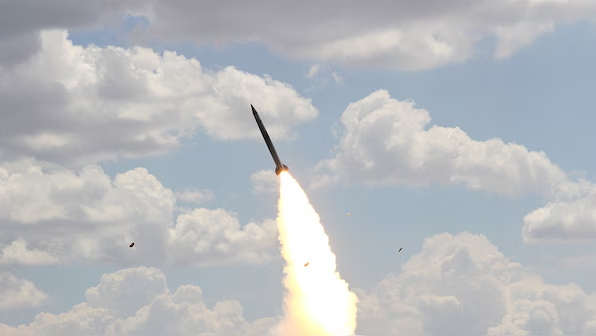In recent years, Russia’s military advancements have garnered significant attention, particularly the development of russian nuclear powered cruise missiles. These weapons, capable of staying airborne for extended periods, represent a leap in military technology and pose new challenges to global security. As geopolitical tensions escalate, the international community is increasingly concerned about the implications of these advanced weapons.
The Development of Russian Nuclear Powered Cruise Missiles
The pursuit of Russian nuclear powered cruise missiles dates back several years, with President Vladimir Putin revealing the existence of such weapons during a 2018 state address. The missile, known as the Burevestnik (NATO codename: SSC-X-9 Skyfall), is designed to have virtually unlimited range, making it capable of reaching targets across the globe. Unlike conventional missiles that rely on rocket fuel, the Burevestnik is powered by a nuclear reactor, allowing it to remain in flight for extended periods and circumvent traditional missile defense systems.
This technological innovation has raised alarms in the West, with experts warning that such missiles could be used for surprise attacks, given their ability to follow unpredictable flight paths. The development of the Burevestnik underscores Russia’s broader strategy to enhance its military capabilities and assert its power on the global stage.
Recent Developments and Satellite Evidence
Recent satellite imagery has provided new insights into russian nuclear powered cruise missile program. Researchers from the United States have identified what appears to be a launch site for these missiles in a remote region of Russia (New York Post). This site, located in the Arctic Circle, is believed to be a testing ground for the Burevestnik and other advanced weapons.
The imagery reveals a large, newly constructed facility with infrastructure that suggests it is designed for testing nuclear-powered missiles. The presence of such a facility highlights the ongoing development and potential deployment of these weapons, which could dramatically alter the global strategic balance.
According to a report by Newsweek, the launch site is equipped with sophisticated radar systems and other equipment necessary for testing long-range missiles (Newsweek). The discovery of this site has intensified concerns among Western nations, particularly given the missile’s potential to bypass existing missile defense systems.
Unlock more:-
- Tommy Paul’s Epic US Open Battle: A Hard-Fought Clash Against Jannik Sinner
- Odyssey Jones: Navigating the WWE Landscape and Future Prospects
- Honoring the Legendary James Darren: A Hollywood Icon’s Remarkable Legacy
Implications for Global Security
The development of nuclear-powered cruise missiles by Russia has significant implications for global security. The Burevestnik, with its virtually unlimited range and ability to evade detection, represents a new type of threat that current defense systems are not equipped to handle. This has led to renewed calls for arms control agreements to address these emerging technologies.
However, the prospect of reaching new arms control agreements with Russia remains uncertain. Relations between Russia and the West have deteriorated in recent years, particularly following Russia’s annexation of Crimea and its involvement in the conflict in Ukraine. The development of advanced weapons like the Burevestnik further complicates these relations, making it more difficult to find common ground on issues of global security.
In addition to the strategic concerns, there are also significant environmental risks associated with the testing and potential deployment of nuclear-powered cruise missiles. The use of nuclear reactors in these missiles raises the possibility of radioactive contamination in the event of a crash or malfunction. This risk is particularly acute in the Arctic, where fragile ecosystems could be severely impacted by such an incident.
The Road Ahead
As Russia continues to advance its nuclear-powered cruise missile program, the international community faces the daunting task of addressing the challenges posed by these new weapons. While the development of such technology is a significant achievement for Russia, it also raises critical questions about the future of global security and the need for new arms control measures.
The discovery of the potential launch site in Russia highlights the urgency of these issues. As nations grapple with the implications of these advanced weapons, it is clear that the world is entering a new era of military technology—one that will require innovative solutions to ensure peace and stability in an increasingly complex global landscape.
The ongoing developments in russian nuclear powered cruise missile program will undoubtedly continue to be a focal point of international concern, as the world watches to see how this new chapter in military technology unfolds.
For further reading on Russia’s military advancements and global security concerns, check out this analysis by the BBC and a detailed report from The Guardian.






